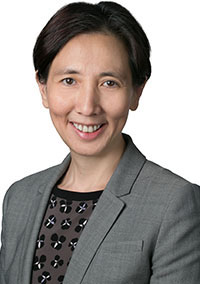Moving more helps mobility of older adults with complex health needs
Moving more helps mobility of older adults with complex health needs
The Problem
Physical frailty in older adults occurs when they reduce their daily activities and lose some of their physical function causing an impact on their overall health. Additionally, they often have chronic conditions that limit their daily activities and independence.
The Solution
When older adults increase their physical activity, this helps them better manage their chronic conditions and prevents frailty. In a previous study our scientists showed that physical activity counselling with a physiotherapist was key to helping older adults stay active.

What the Study will do
This project will provide physical activity counseling, based on the new Canadian 24-hour Movement Guidelines, to older adults with chronic conditions who are at an early state of frailty
The Research Study
The Canadian 24-hour Movement Guidelines adopt an integrated approach which encourages daily physical activity while balancing appropriate sedentary behavior and sleep time.
This study will test our adapted approach with the one currently used by physiotherapists and determine if it increases the physical activity time for older adults more than the current approach.
Research Scientist

Linda Li ,Clinical Epidemiology, BSc(PT), MSc, PhD, FCAHS
Senior Scientist
She completed her Bachelor of Science in Physiotherapy at McGill University and Master’s of Science at the University of Western Ontario. She earned a Doctorate in Clinical Epidemiology at the University of Toronto in 2004. Two years later, she completed a CIHR-funded Post-doctoral Fellowship in knowledge translation at the Ottawa Hospital Research Institute.
Dr. Li’s research and academic activities focus in two areas: models of care in the management of arthritis, and the development and evaluation of knowledge translation strategies. Her research centres on assessing health service delivery models, and understanding and facilitating the use of evidence by health professionals and patients. Areas of methodological expertise include clinical epidemiology, knowledge translation, clinical trials, and survey design.


















































